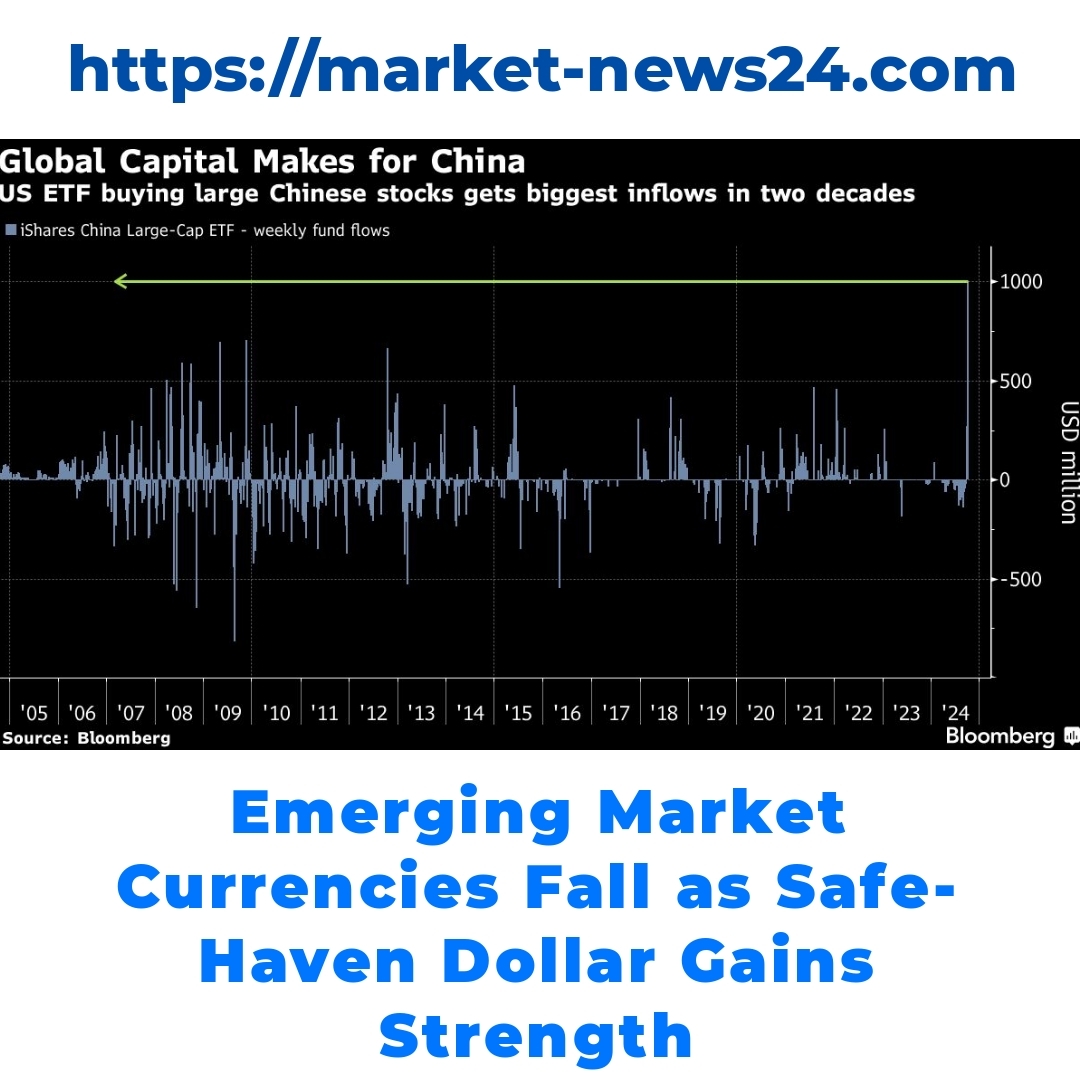The ongoing financial climate is marked by a noticeable weakening of emerging-market currencies, raising concerns among investors and economists alike. Geopolitical events, particularly conflicts in the Middle East, alongside evolving economic policies, significantly influence these currencies. Understanding these dynamics is crucial for navigating this complex landscape.


Understanding Emerging-Market Currencies
Emerging-market currencies represent the money used in developing countries, often showcasing higher volatility compared to major currencies like the US dollar or the euro. These currencies are crucial for global markets, as they reflect the economic health of their respective countries and play a significant role in international trade.
The characteristics of emerging-market currencies include the potential for rapid growth, susceptibility to inflation, and vulnerability to external shocks, including geopolitical events. With currency weakening, these economies face financial instability, which can trigger inflation and reduce purchasing power for consumers. Investors must pay close attention to the trends of these currencies, especially in light of ongoing global uncertainties.
The Role of Geopolitical Events: Spotlight on the Middle East Conflict
The ongoing Middle East conflict has significant implications for global markets, particularly regarding emerging-market currencies. As tensions rise, investors tend to gravitate towards safe-haven assets, with the safe-haven dollar being a primary choice. When investors seek stability, the demand for the US dollar increases, leading to downward pressure on currencies from emerging markets.
This dynamic creates a challenging environment for these currencies, which can experience rapid depreciation as confidence wanes. The impact of the Middle East conflict on emerging-market currencies cannot be underestimated, as geopolitical tensions often lead to increased volatility and risk aversion in the markets, pushing investors to prioritize security over potential returns.
The Influence of the US Federal Reserve Rate Cuts
Recent data from the US suggests that the Federal Reserve might moderate the pace of rate cuts. This information carries significant weight for emerging-market currencies. Typically, when the US Federal Reserve cuts rates, it can lead to weaker dollar values, encouraging investment in riskier emerging markets. However, a more cautious approach to rate cuts may strengthen the dollar instead, putting additional pressure on these currencies.
Understanding how US Federal Reserve rate cuts affect global markets is crucial for investors focusing on emerging markets. As interest rates in the US lower, capital flows may shift, prompting international investors to reconsider their strategies amid changing economic landscapes.
Safe-Haven Assets and Investment Strategies During Geopolitical Unrest
During times of geopolitical uncertainty, safe-haven assets become increasingly important. Safe-haven assets are investments that retain or even increase value when markets are turbulent, providing a shelter against financial loss. The safe-haven dollar tops the list, as it tends to appreciate when emerging-market currencies falter.
Investors can adopt several strategies during such times to navigate currency weakening:
– Diversify portfolios with a mix of safe-haven assets.
– Monitor geopolitical developments closely to adjust investment positions.
– Consider investing in inflation-linked securities from emerging markets to hedge against potential currency depreciation.
These strategies can assist in mitigating risks associated with geopolitical unrest, ensuring that portfolios maintain some measure of stability.
Conclusion
In conclusion, the relationship between the Middle East conflict and emerging-market currencies is intricate and deeply affected by various factors, including geopolitical events and economic policies. Understanding how US Federal Reserve rate cuts affect these currencies is equally important, as they can shift investment dynamics substantially.
Additionally, safe-haven assets play a critical role in maintaining financial stability during turbulent times. As emerging-market currencies face significant pressures, being aware of these trends can help investors make informed decisions in a complex global landscape. Ultimately, recognizing the significance of emerging-market currencies within the broader economic context remains vital for any investor navigating this challenging market environment.
FAQ
What are emerging-market currencies?
Emerging-market currencies are the currencies used in developing countries. They often show higher volatility compared to major currencies like the US dollar or euro. These currencies are important because they indicate the economic health of their nations and affect international trade.
Why are emerging-market currencies more volatile?
Emerging-market currencies face several challenges that contribute to their volatility, including:
- The potential for rapid economic growth.
- Higher susceptibility to inflation.
- Vulnerability to external shocks, such as geopolitical events.
How do geopolitical events, such as the Middle East conflict, impact emerging-market currencies?
Geopolitical events like the Middle East conflict can lead to increased uncertainty. When tensions rise, investors often move towards safe-haven assets, increasing demand for the US dollar. This can cause emerging-market currencies to weaken and experience depreciation due to decreased investor confidence.
What are safe-haven assets?
Safe-haven assets are investments that tend to retain or increase in value during market turmoil. The US dollar is a primary safe-haven asset, while others can include gold and government bonds. These assets provide a way for investors to protect their portfolios during uncertain times.
How can investors protect themselves when emerging-market currencies weaken?
Investors can consider several strategies to navigate a weakening currency environment:
- Diversifying their portfolios with a mix of safe-haven assets.
- Keeping a close eye on geopolitical developments to adjust investment positions accordingly.
- Investing in inflation-linked securities from emerging markets to hedge against currency depreciation.
What influence do US Federal Reserve rate cuts have on emerging-market currencies?
US Federal Reserve rate cuts usually lead to a weaker dollar, which can encourage investment in emerging markets. However, if the pace of rate cuts slows down, it may strengthen the dollar and put additional pressure on emerging-market currencies, potentially leading to capital outflows from these economies.
Why is it essential to understand emerging-market currencies for investors?
Understanding emerging-market currencies is vital for investors as it helps them navigate global economic trends. These currencies reflect the performance of developing economies and are influenced by various factors, including geopolitical events and monetary policies. Recognizing these trends aids investors in making informed decisions.





